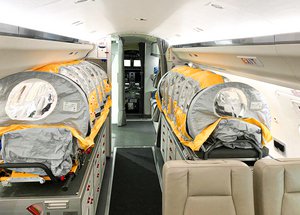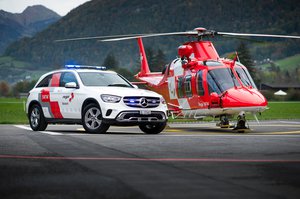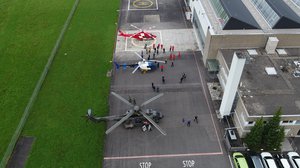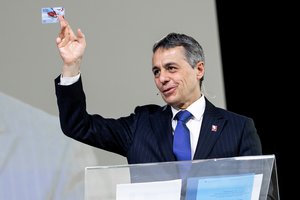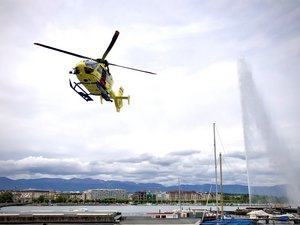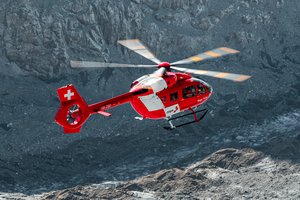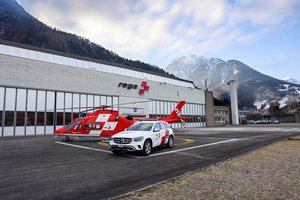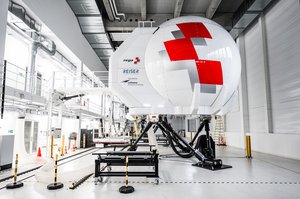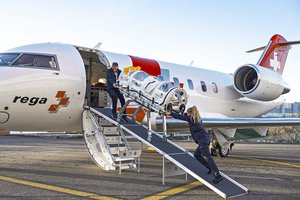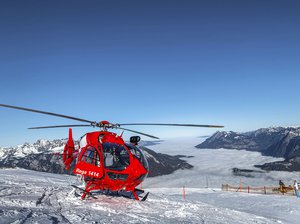23 January: On the return flight after a mission, the Rega crew from the Lausanne base receive a distress signal from a small aircraft that has crashed. They immediately start searching for the point of origin of the signal and notify the Rega Operations Centre. The Operations Centre calls out the Rega helicopter from the Wilderswil base as support, which is equipped with the IR/EOS multi-sensor search system. With the aid of a direction finder and the ultra-sensitive thermal imaging camera, the crew succeed in locating the crashed aircraft in the middle of a forest near Saint-Légier-La Chiésaz (Canton Vaud).
11 March: The Rega crew from the Locarno base transports Rega’s first confirmed Covid-19 patient on board a Rega helicopter. The patient needs to be transferred from the hospital in Mendrisio to Locarno Regional Hospital. By the end of the year, the helicopter crews will have transported a total of 316 Covid-19 patients on board their aircraft.
2 April: For the first time, a Rega crew transports two patients simultaneously on board an ambulance jet in separate patient isolation units (PIU). A Swiss married couple who contracted Covid-19 during a cruise need to be repatriated from the Caribbean island of St.Martin.
1 September: Rega stations an emergency doctor vehicle at its Erstfeld base. Now the Rega emergency physician on duty can also be called out when a mission with the rescue helicopter is not possible, for example, due to bad weather. A similar vehicle is already being successfully used at the Mollis base in Canton Glarus.
22 September: Rega invites representatives from the Air Force, employees from various police forces and mountain rescuers from home and abroad to the training event, "Ricerca – emergency search for missing persons", at its Wilderswil base. The main focus is placed on concrete mission examples and the exchange of experiences between the various organisations. Diverse rescue resources are presented, including the Rega drone.
30 October: The Swiss Confederation issues a press release informing the general public that Rega’s Helicopter Operations Centre has been entrusted with the task of acting as the "national coordination centre for intensive care units". As a result, the flight coordinators will, where necessary, help Swiss hospitals to find empty intensive care beds.

